Recent Articles
Popular Makes
Body Types
EV Benefits: Why Buying an Electric Car Makes Good Sense
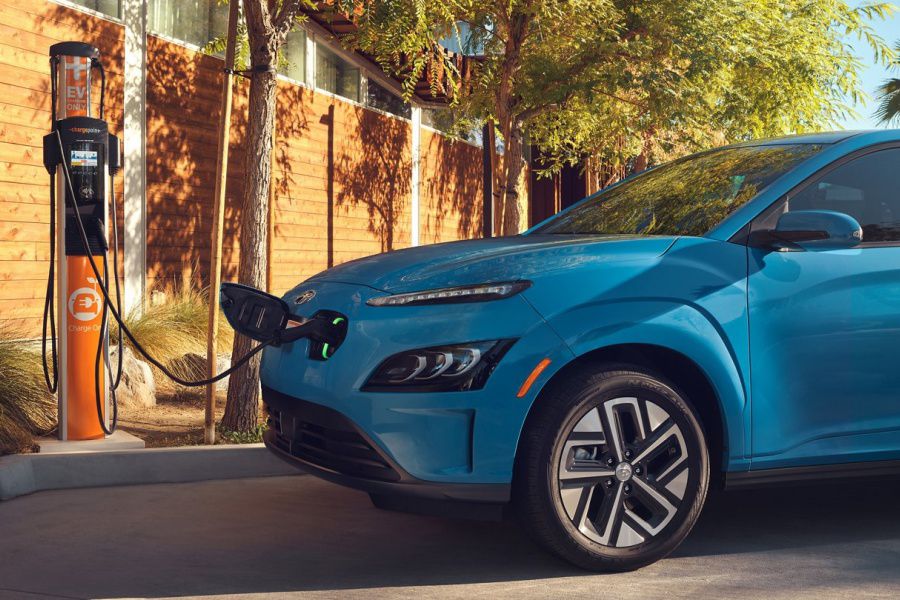
2022 Hyundai Kona EV ・ Photo by Hyundai
EVs are reaching critical mass. The combination of consumer demand, government regulation, and environmental imperatives has prompted vehicle manufacturers the world over to introduce more and more electric vehicles. Three decades ago, someone who considered buying a battery-powered vehicle was pictured as part of a lunatic fringe. These days, anyone who shops for a battery-electric vehicle is deemed a smart buyer. The reason for the change in perception is simple. Thirty years ago, the rudimentary electric vehicles on the market found it impossible to meet the needs of most car buyers. Range was too limited, and charge times were too long. The idea of "public charging stations" had barely been thought of. But fast-forward to the present day and things have changed. EVs have ceased being oddballs and are, instead, intelligent buys. Buying an EV has several significant benefits. Here's why buying an electric car makes good sense.
Lower Maintenance Costs
While today's electric cars are high-tech, at the same time, their basic components are much simpler than a car powered by an internal combustion engine. A conventional car requires an engine with complex systems for cooling, lubrication, fuel delivery, and power transmission. All these sub-systems require maintenance and could require repairs. In contrast, an electric car doesn't need coolant flushes, oil changes, filter replacements, or transmission fluid checks. These typical "maintenance items" go out the window the minute you purchase an EV; the result is significantly lower maintenance costs. Some estimate that such expenses are 60 percent lower for EVs than for conventional gasoline-fueled cars.

Photo by Mr. Music - stock.adobe.com
Lower "Fuel" Costs
Speaking of fuel, an electric car doesn't use any, at least in the traditional sense. A conventional vehicle uses its engine to convert the energy potential stored in gasoline into motive power. An EV does things differently. Instead of creating energy on board via an engine, an electric vehicle utilizes energy that was generated elsewhere stored in batteries onboard. Because of this, its operating costs are tied very directly to the cost of electric power provided by local utilities through public charging stations or directly from at-home solar charging. While these costs can vary widely, the good news is that, most often, using electricity to power a vehicle is significantly less expensive than gasoline on a miles-driven basis. Most electric vehicles also supplement the energy supplied from outside sources with electricity created by "regeneration" during deceleration and braking. In a typical conventional vehicle, this energy is wasted. The bottom line is EVs use energy much more efficiently than traditional gasoline-powered vehicles, and that can result in cash savings in your pocket.
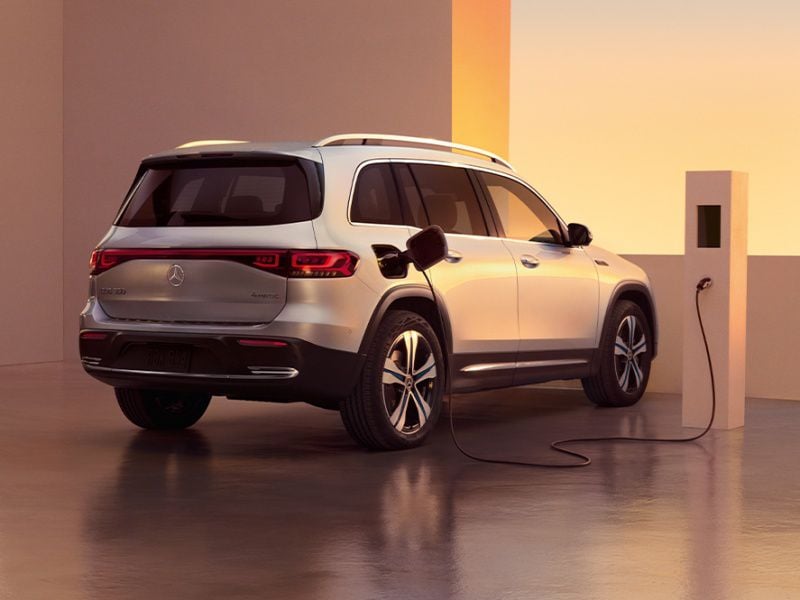
Photo by Mercedes-Benz
EVs Are More Affordable
Not only is electricity cheaper than gasoline, but electric cars, trucks, and SUVs are becoming more affordable. In these inflationary times, the prices of all vehicles are rising. That said, EV prices have not increased at the rate that we have seen with conventional vehicles — and in some cases, the prices have even decreased. As this is being written, several important EV manufacturers have recently dropped the prices of many of their models. Others have held the line on EV prices as the prices of conventionally powered vehicles have continually risen. It is true that purchase prices of most EVs are still higher than the prices of traditional vehicles of similar size and type, but the delta separating the two is shrinking. Some experts think it is quite possible we will see price parity soon. Once we reach that point, we can expect EV sales to gather even more steam.
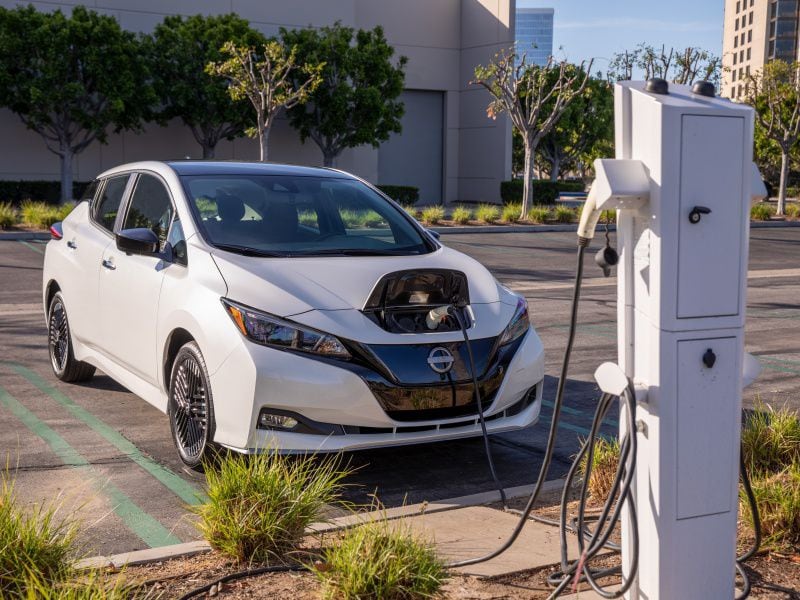
Photo by Nissan
Consumers Have More EV Choices
Global automakers follow trends, and there is absolutely no doubt that battery-electric vehicle represent the biggest trend of the past two decades. Around the world, legacy carmakers with rich histories are being joined (and challenged) by start-up companies that are eager to profit from the megatrend of electric vehicles. This has resulted in an explosion of EV choices versus the number of battery-powered vehicles on the market as recently as five years ago. And the recent influx of new EVs is just the tip of the (melting) iceberg... Over the next two years, we are likely to see the introduction of more than 100 new battery-electric models to complement the already available BEVs. Car buyers have consistently demonstrated that they want choice, and EV makers are primed to give it to them. In comparison to the wide variety offered by conventional vehicles, EVs currently give buyers limited options. But as buyers’ preferences turn to BEVs, the number of alternatives will grow exponentially.

Photo by Rivian
Superior Driving Experience
Not only are we seeing more EV models, but the new EVs are getting better. The improvements in electric vehicles are stunning, and they extend to just about every aspect of driving. Today's best EVs offer more range, more safety, more convenience, more comfort, and more tech than electric vehicles that came to market just a few years prior. The improvements are significant — and startling. What these improvements translate into is a better driving experience. EVs are smooth, quiet, and powerful. Compared to conventional vehicles, the most recent electric vehicles offer a driving experience that could be described as effortless. While conventional vehicles make noise, shift gears, and require frequent trips to gas stations, electric vehicles largely eliminate each of those factors. Acceleration in the typical EV is swift, strong, and silent. Braking is sure and uneventful. Recent consumer studies have demonstrated quite clearly that EV buyers love the driving experience their vehicles offer.
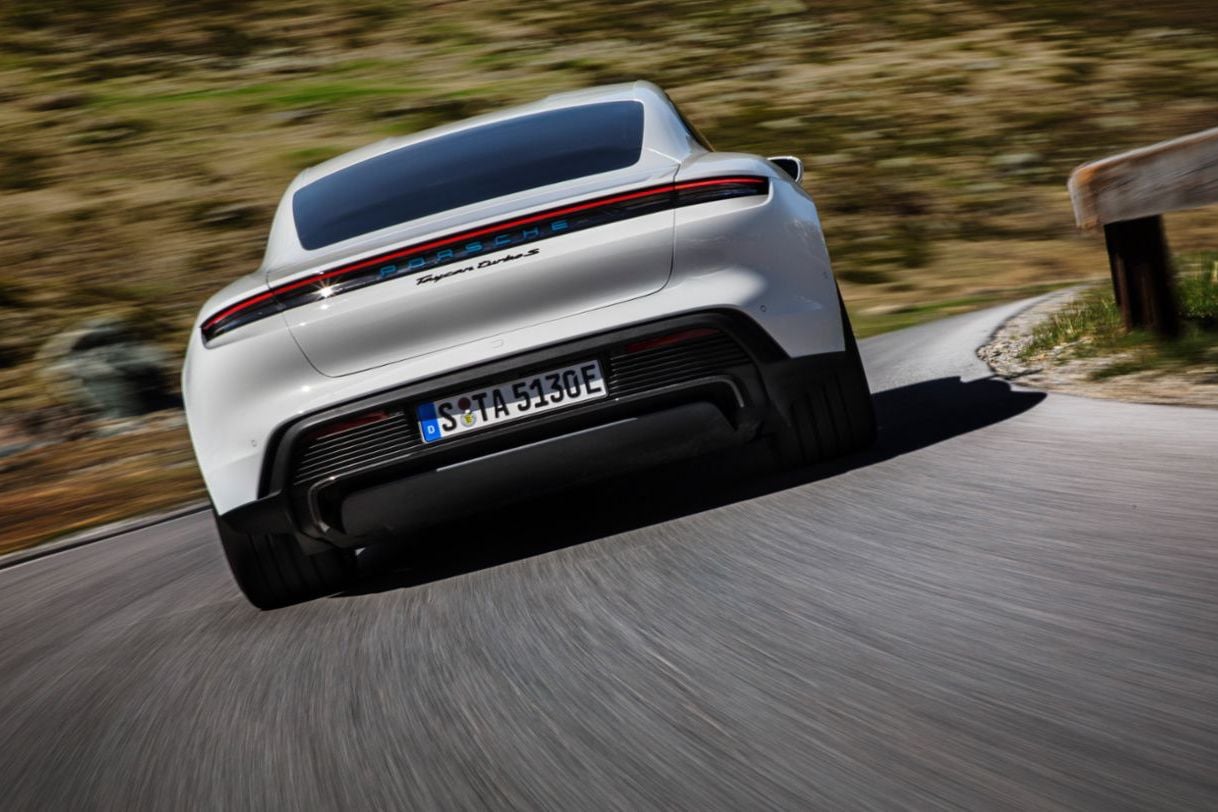
Photo by Porsche
Tax Credits and Government Incentives
Governments the world over have lined up in favor of electric vehicles. In many instances, including here in the United States, government leaders, legislatures, and regulators have decided it is in the public's best interest to promote the transition from conventional fossil-fuel vehicles to battery electrics. Many countries have instituted incentives for the purchase of EVs. In the U.S., this has taken the form of a federal income tax credit. Recently, the rules on qualification for these tax credits have changed radically, but those who qualify can still expect to receive a $7,500 income tax credit. Some states and localities also offer tax credits and other incentives designed to spur the purchase of EVs as well. In this transition period, you might be paid to switch from a conventional vehicle to an EV.
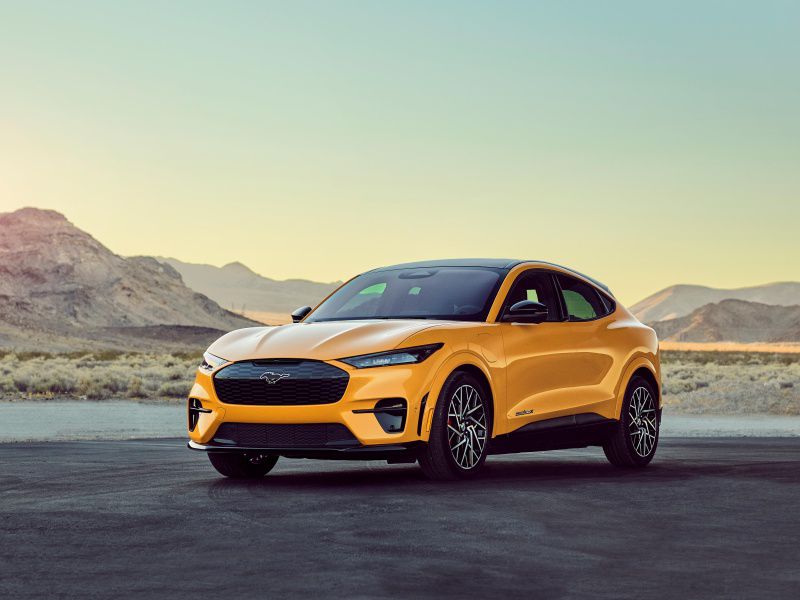
Photo by Ford
Top-Tier Technology and Features
EVs are leading-edge vehicles often purchased by "early adopters." Consumers with this progressive mindset appreciate advanced technology. The makers of electric vehicles are quick to cater to their desires by filling their electric vehicle offerings with innovative technology. EVs have led the charge in trends like large infotainment and information displays and advanced driver assistance systems. Several EVs currently offer semi-autonomous driving systems, and it is likely that they will be equipped with even more sophisticated self-driving systems in the future. The cabins of most electric vehicles are studded with innovative features. If you appreciate leading-edge technology, you are likely to find it in an EV.
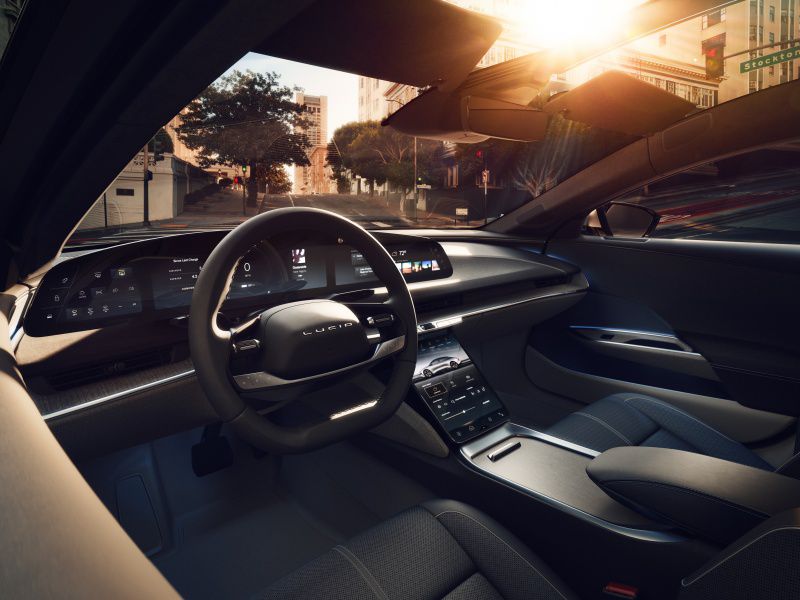
Photo by Lucid
Ranges Expanding
Remember when "range anxiety" was a buzzword used to describe the EV driving experience? Carmakers want customers to be anxious to buy their products, not anxious about the products themselves. With that in mind, they have gone out of their way to add useful range to their EVs so that owners of those vehicles don't have to worry so much about where their next electrons are coming from. These days, it is common to see affordable EVs that boast more than 200 miles of range on a fuel charge. Vehicles with a maximum range of more than 300 miles are not widely available. While adding range has cost and weight implications, EV manufacturers seem to be finding the sweet spot that takes the range worry out of the EV (=MC2) equation.
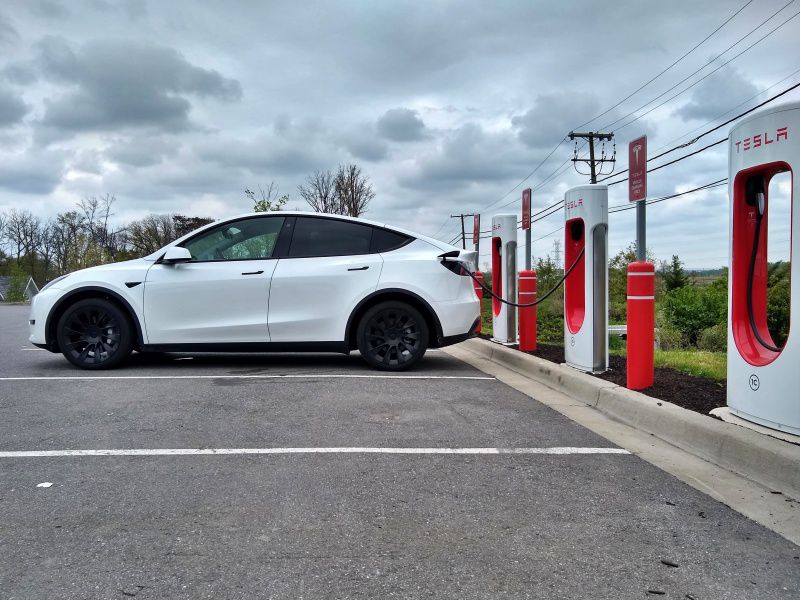
Photo by Brady Holt
Charger Network Expanding
As range on a full charge increases, so, too, is the number of public chargers. Though there are indeed fewer public charging stations than there are gasoline stations, the gap is being narrowed. Recent legislation in the U.S. has committed billions of taxpayer dollars to expand the public EV-charging network. At the same time, advancements in EV-charging technology and complementary advanced inboard-charging technology have resulted in much faster charge times. Today, all EV makers are racing to make their vehicles take on energy loads faster and more efficiently. While it still takes longer to bring an EV from a 20 percent charge to an 80 percent charge than it does to fill a car's tank with gasoline, the gap is getting narrower and narrower.
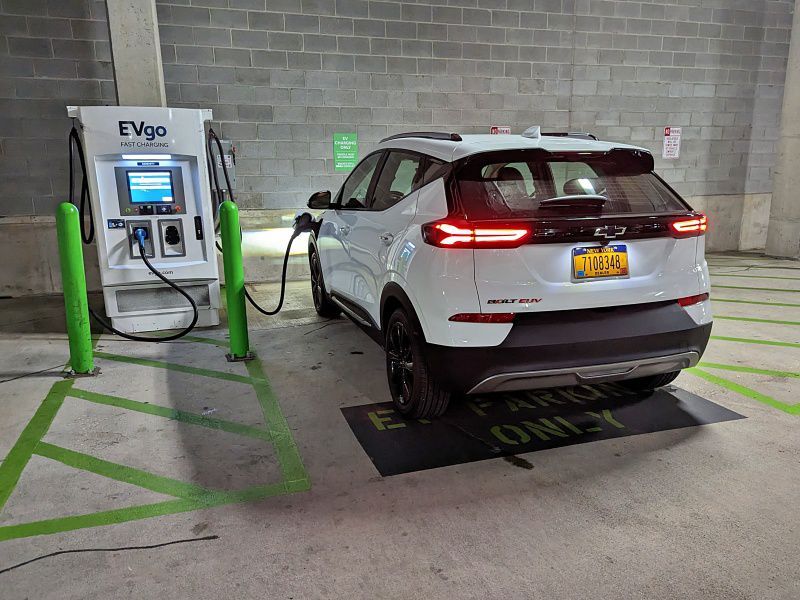
Photo by Brady Holt
Improving the Environment
While all the previously mentioned EV benefits are important, the biggest benefit of an EV is that it is considered better for the environment than a conventionally powered vehicle. In operation, an EV emits no pollutants and no carbon dioxide. The benefits of doing the former are obvious. The benefits of the latter are that an EV is not a significant contributor of atmospheric carbon dioxide, which is theorized to promote global climate change. These are the reasons that governments around the world continue to promote battery-electric vehicles as the personal transportation solution in the future. By purchasing an EV, the consumer becomes part of that vanguard.
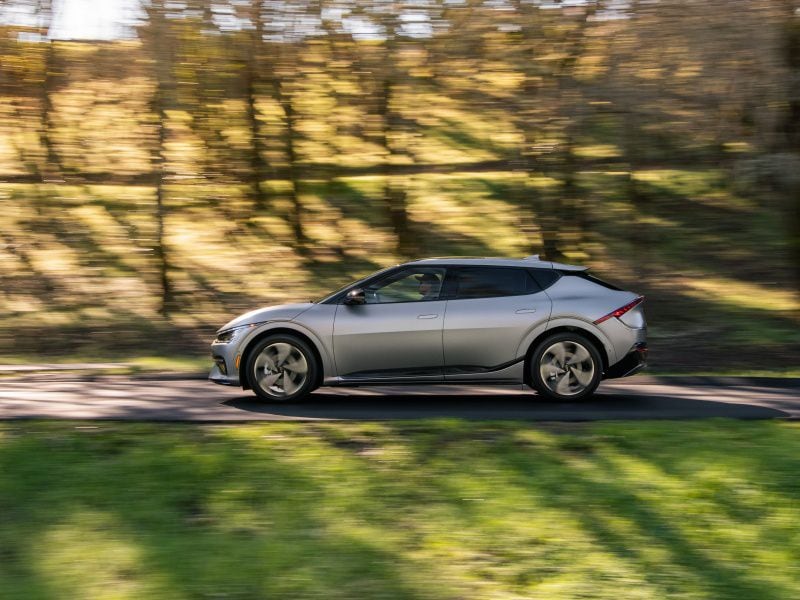
Photo by Kia